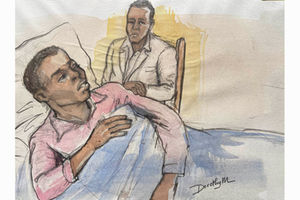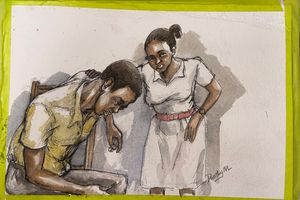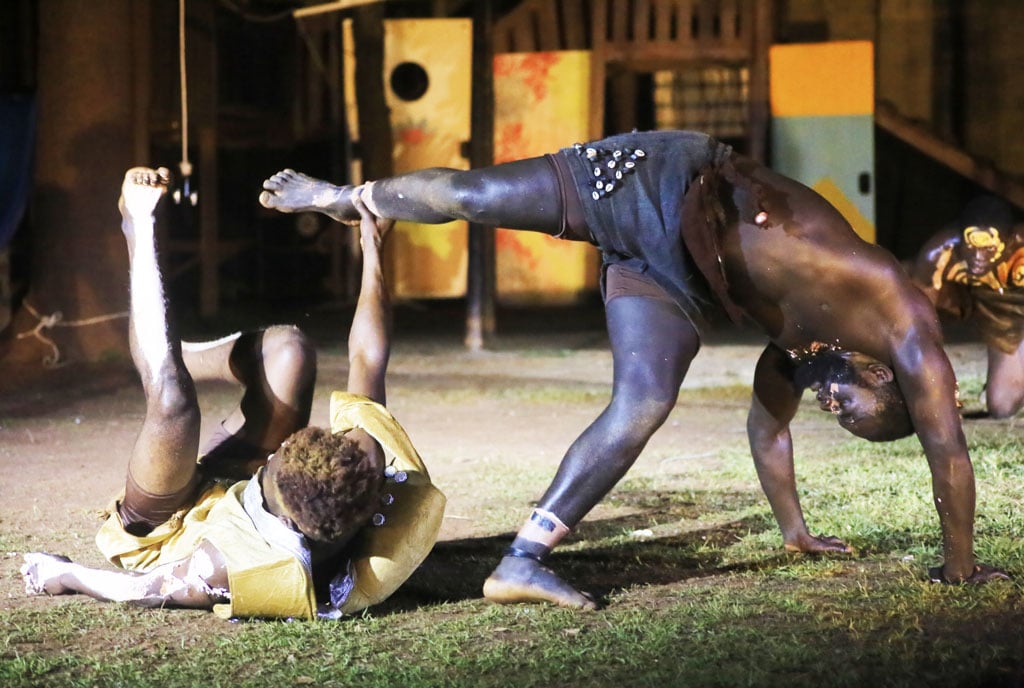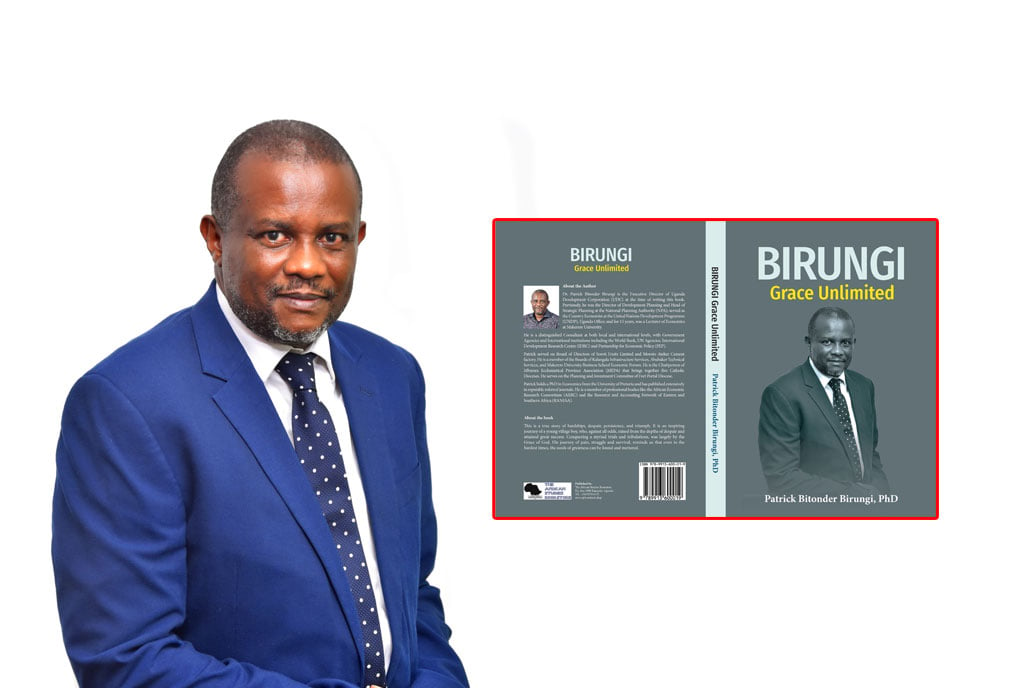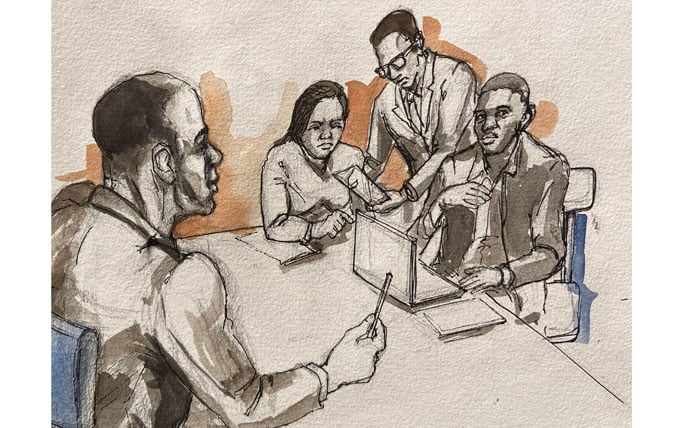
In a bizarre case of poisoning, court on February 20, 2024, sentenced a man to 44 years of imprisonment for an offence he may never have committed. In convicting him, court overlooked and ignored the submissions made by lawyers of the accused person.
The man was accused of giving Carbofuran, a highly toxic substance to his younger brother, a university student, two months prior to his death. Medical evidence indicated that the student died of acute pancreatitis and there was a history that the deceased had taken considerable amounts of alcohol, one week before the onset of the disease.
The witnesses also told court that the deceased had complained of abdominal pain in the two months before his death, which abdominal pain was attributed to stomach ulcers and treated accordingly with improvement.
The incident complained of occurred two months, in a spa, before the young man died. The incident was allegedly witnessed by the father of the deceased who was known to have an impaired sight at night. It was the evidence of the investigating officer that there were surveillance cameras at the spa but there was no evidence of this incidence recorded by the cameras.
There were also contradictions in the statements of the eye witnesses as to what exactly what the deceased drunk that evening. The defence team argued that the poison story was an afterthought and a concoction.
The father of the deceased told court that the deceased confided in him, while in hospital, that his half brother had “finished” him, implying that he had been given poison by his half brother.
The lawyers, in their submission, questioned why the father of the deceased did not address this matter there and then and urgently and why the hospital and police were not informed immediately so as to commence investigations.
The father of the deceased attempted to paint a picture of a sour relationship between his two sons. He told court that the elder son gave the same poison to the deceased in 2018 but no evidence of this was adduced and the lawyers submitted that this was only presumptive.
The deceased’s mother denied knowledge of the incidence. The lawyers further asked why the deceased survived that time and not this time. The two brothers also continued to relate well as manifested by the time they were together at the spa. It was also evident that all the siblings of the deceased visited and supported him while he was in hospital, including the accused. The accused even contributed to the medical bills of his half brother as brought out in the evidence before court.
Court often relies on the behavior of an accused person before, during and after the commission of an offence to infer intent or malice aforethought; but not in this case. It was submitted that the conduct of the accused person before and at the time of death of his brother and even afterwards was the conduct of an innocent man.
It was the evidence of the investigating officer that the accused was found in his house where he had stayed a whole year before the time of his arrest. He did not hide after the death of his brother nor was his behavior suspicious thereafter and he offered no resistance when he was arrested. This, to the defence, was the behavior of an innocent man.
Prosecution attempted to rely on a Turkish proverb that the accused sent to one of his relatives to impute malice aforethought. The proverb was that although the forest kept on shrinking, the trees continued voting for the axe as the axe was clever and convinced the trees that he was one of them as his handle was made of wood.
The defence submitted that prosecution never followed any principle of extracting electronic evidence and the accused person denied knowledge and source of the said proverb. To the defence team this evidence was, therefore, inadmissible. However, court was to rely on this evidence, of all things, to convicted the accused person.
The motive of an offence is not part of the ingredients that must be proved before court. It may, however, form part of the circumstances of the case. The prosecution attempted to rely on a land dispute between the deceased and the accused. It was alleged that the accused encroached on the land of the deceased in the village.
The investigating officer failed to tell court the size of the two lands but said that the accused erected a gate in the land of the deceased. The demarcation and size of the lands in question were not proven in court and the matter was not reported to any police unit or court.
A neighbour of the two, a prosecution witness, told court that she did not know of any encroachment. The defence submitted that there was no land conflict and no grudge between the two and this issue was brought before court with intention to misled court to secure a conviction. Court indeed pounced on this evidence.
In a similar case court condemned and was greatly disappointed with the manner in which prosecution handled its case. Court held that the investigations done by the police were a nullity. To court it was an abuse of the fundamental human rights of the accused persons. In the premises the accused persons were all acquitted on a no case to answer. In the present case the defence submitted that the investigators were not after the truth but fabricated the evidence and what was sent to the Office of the Directorate of Public Prosecutions (ODPP) was a pack of lies.
To the lawyers the accused person can only be convicted on the basis of evidence adduced before court, which evidence must be credible and not tainted by any lies, falsehoods and hearsay. Court is duty bound to reject such evidence.
Unfortunately the ODPP sanctioned this case file without internalizing it and committed the case for trial without sufficient evidence to sustain the charges. This, to the lawyers, was a total waste of the court’s and everybody’s time. Court, however, thought otherwise.
